Afghanistan........
http://antiwar.com/blog/2013/12/04/the-zero-option-is-the-best-option-in-afghanistan/
![Obama-confused[1]](http://antiwar.com/blog/wp-content/uploads/2013/05/Obama-confused1-e1368542882894.jpg)
http://news.antiwar.com/2013/12/03/kerry-afghan-dm-could-sign-pact-if-karzai-refuses/
( Sec of State Kerry meddling in Afghanistan affairs by suggesting a seemingly unconstitutional work around to get the BSA signed if Afghan President Karzai refuses to do so - US just seems really desperate to hang on in Afghanistan.... )
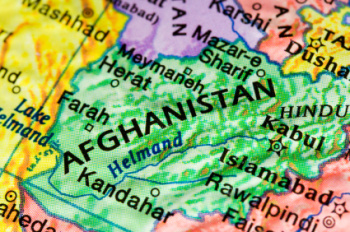 In comments today, Secretary of State John Kerry noted that Afghan President Hamid Karzai is still refusing to sign, and suggested that the UScould ask Defense Minister Bismullah Khan Mohammadi to sign instead, or failing him, somebody else in the Afghan government might be asked.
In comments today, Secretary of State John Kerry noted that Afghan President Hamid Karzai is still refusing to sign, and suggested that the UScould ask Defense Minister Bismullah Khan Mohammadi to sign instead, or failing him, somebody else in the Afghan government might be asked.
 The shipments are part of the drawdown planned in 2014, and the Pentagon says they anticipate the shipments to resume “in the near future” without any problems.
The shipments are part of the drawdown planned in 2014, and the Pentagon says they anticipate the shipments to resume “in the near future” without any problems.
http://news.antiwar.com/2013/12/04/secular-syria-rebels-mull-rejoining-govt-to-fight-al-qaeda/
 That may not sound like much on the surface, but it points to what officials say is a significant shift in the secularist rebel perspective, as they consider merging with the Assad government to end their mutual fighting and instead focus on the war against al-Qaeda and the rest of the Islamist rebels.
That may not sound like much on the surface, but it points to what officials say is a significant shift in the secularist rebel perspective, as they consider merging with the Assad government to end their mutual fighting and instead focus on the war against al-Qaeda and the rest of the Islamist rebels.
 The “why” behind this remains an unanswered question, as the talks apparently began as feelers over whether or not the factions were comfortable allying with the secular Free Syrian Army (FSA).
The “why” behind this remains an unanswered question, as the talks apparently began as feelers over whether or not the factions were comfortable allying with the secular Free Syrian Army (FSA).
http://antiwar.com/blog/2013/12/04/is-obama-changing-tack-on-syria/
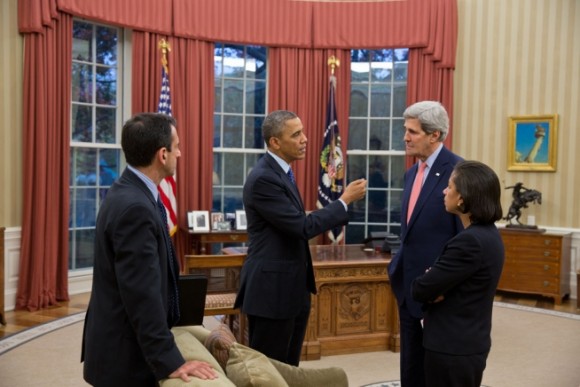
 What started as a collection of rebels, many of them military defectors, aiming to take over the country has changed, with the stark realization among the commanders that rebellion doesn’t pay that well.
What started as a collection of rebels, many of them military defectors, aiming to take over the country has changed, with the stark realization among the commanders that rebellion doesn’t pay that well.
http://khilafah.com/index.php/news-watch/middle-east/17552-syrian-rebels-consider-joining-forces-with-regime-troops-to-fight-al-qaida
( FSA consider joining forces with regime forces to fight Al Qaeda ( and GCC , Western favored rebels )
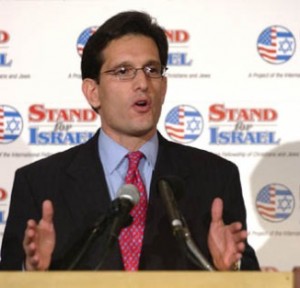 “I for one am really upset with that interim deal,” insisted Cantor, who says his new proposal would demand that any “final deal” bar Iran from any civilian enrichment of uranium.
“I for one am really upset with that interim deal,” insisted Cantor, who says his new proposal would demand that any “final deal” bar Iran from any civilian enrichment of uranium.
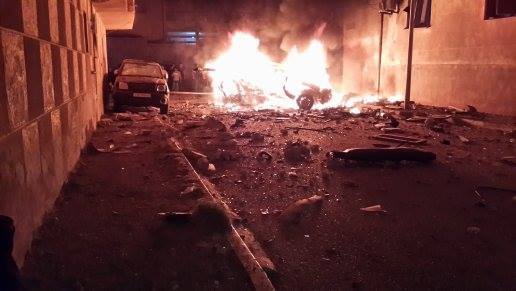
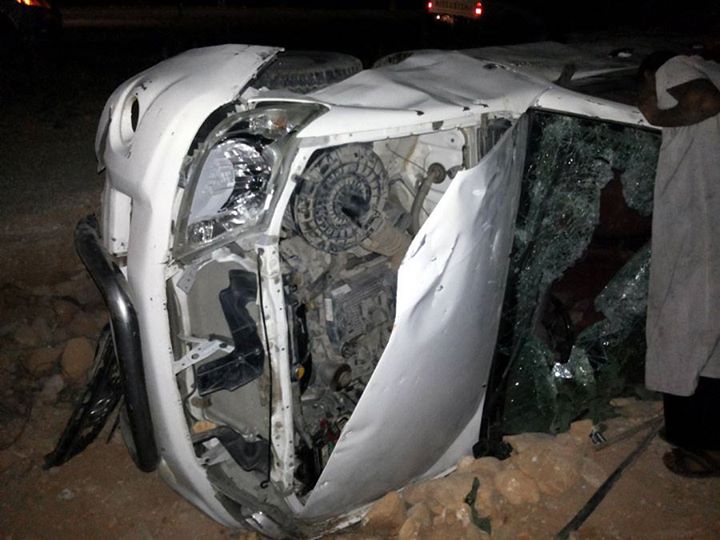
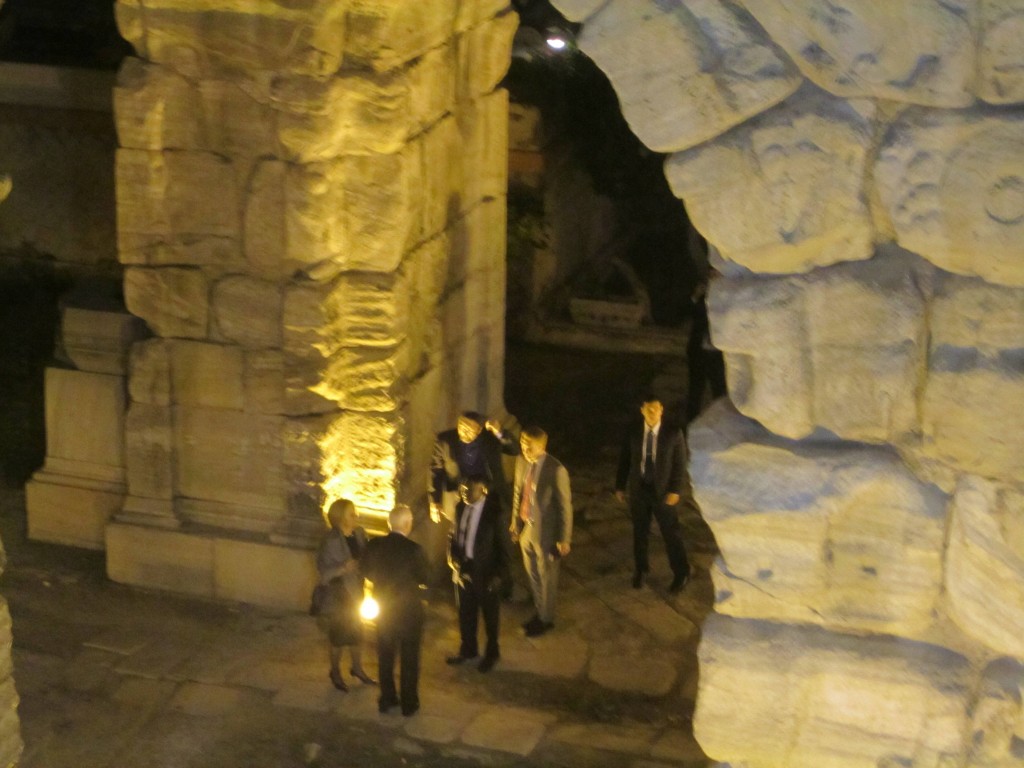
http://antiwar.com/blog/2013/12/04/the-zero-option-is-the-best-option-in-afghanistan/
The ‘Zero Option’ Is The Best Option in Afghanistan
John Glaser, December 04, 2013
![Obama-confused[1]](http://antiwar.com/blog/wp-content/uploads/2013/05/Obama-confused1-e1368542882894.jpg)
As the U.S. wrestles with the Karzai government to finalize a security agreement that would govern thousands of U.S. troops in Afghanistan for another decade, virtually everyone across every spectrum agrees that pulling out completely – the so-called ‘zero option’ – would be reckless and dangerous for America.
The U.S.-backed regime in Afghanistan is too weak to sustain itself without continued U.S. presence and aid, say supporters of keeping troops there. The Taliban is still alive and well and could provide al-Qaeda with a safe haven to attack the U.S., they add, so we’ve got to stay!
First of all, if ten years of nation-building hasn’t established a self-sustaining government in Afghanistan, another ten won’t either. Second, the alliance between the Taliban and al-Qaeda is heavily exaggerated these days. The Taliban have shown zero interest in attacking any Western targets outside the borders of Afghanistan, and their alliance with al-Qaeda has cost them too much over the past decade to eagerly welcome them back in a September 10, 2001 style arrangement. Even if al-Qaeda did set up shop there, it’s hardly an essential ingredient in launching terrorist attacks on America to have a “safe haven” in Afghanistan. Al-Qaeda presence in Afghanistan did nothing to enable the 9/11 attacks, which is why the attacks were planned and carried out in Europe and the U.S. mostly.
Steven Metz at World Politics Review is one of the few in the mainstream to embrace the benefits of the “zero option.” He says the real question is whether the costs of continuing the occupation for another decade at least is worth the reasonably expected benefits (which are few).
But ultimately the question for the United States is not simply whether the Taliban and al-Qaida have a relationship, but whether the security benefits gained from a military presence in Afghanistan and billions of dollars in aid sustained for an indeterminate period justify the costs.Such a commitment would be worthwhile only if it turned out that, one, the Taliban have not learned anything from the past 12 years—that is, if, once freed from direct American military pressure, they would again allow al-Qaida to use Afghan territory to launch attacks on the United States; and two, keeping roughly 8,000 U.S. troops in Afghanistan and sending billions of dollars in assistance would actually make a difference in preventing an al-Qaida attack on the United States or other American targets. Clearly a U.S. counterterrorism program with a major presence in Afghanistan would be more effective than no U.S. presence. But the issue is whether the increased effectiveness is worth not only the direct costs of the aid and U.S. troops, but also the opportunity costs, since that money and those troops could be doing something else that directly augments American security or prosperity.Ultimately, it is hard to make a persuasive case that the benefits of sustaining a direct role in Afghanistan justify the costs.
Large majorities of Americans want to pull out of Afghanistan, and that’s with virtually nobody on TV or in the newspapers actually making the argument for the zero option. Even under the most favorable assumptions, the costs of continuing “the mission” in Afghanistan outweigh the benefits, if one could conceive of any.
http://news.antiwar.com/2013/12/03/kerry-afghan-dm-could-sign-pact-if-karzai-refuses/
( Sec of State Kerry meddling in Afghanistan affairs by suggesting a seemingly unconstitutional work around to get the BSA signed if Afghan President Karzai refuses to do so - US just seems really desperate to hang on in Afghanistan.... )
Kerry: Afghan DM Could Sign Pact If Karzai Refuses
US Wants an End-Around, But Can They Really Avoid Karzai?
by Jason Ditz, December 03, 2013
The Obama Administration remains desperate to secure the signature of somebody on the Bilateral Security Agreement (BSA) which will keep them in Afghanistan beyond 2024. They’re getting less and less picky about who that somebody is.
 In comments today, Secretary of State John Kerry noted that Afghan President Hamid Karzai is still refusing to sign, and suggested that the UScould ask Defense Minister Bismullah Khan Mohammadi to sign instead, or failing him, somebody else in the Afghan government might be asked.
In comments today, Secretary of State John Kerry noted that Afghan President Hamid Karzai is still refusing to sign, and suggested that the UScould ask Defense Minister Bismullah Khan Mohammadi to sign instead, or failing him, somebody else in the Afghan government might be asked.
The US seems confident it “could” do any of these things, but the legality of the BSA as an “Executive Agreement” circumventing the US Senate, which is obliged to be consulted on treaties, is already shaky enough with Karzai on board.
Can the Obama Administration really try to shove through an “Executive Agreement” without the chief executive of the other government a willing participant? It is difficult to see how this could be made to resemble legality in even the broadest sense, and Kerry’s suggestion that absent Mohammadi’s imprimatur they could ask just some random “somebody” in the Afghan government to rubber stamp is completely absurd.
The comments may well be the latest in a series of attempts to bluff Karzai into signing off on the pact, but if they are not merely a bluff suggest the administration is willing to stay in Afghanistan by hook or by crook, and mostly crook.
http://news.antiwar.com/2013/12/03/us-halts-shipments-from-afghanistan-to-pakistan-citing-protests/
( Blowback halting shipments from Afghanistan to Pakistan - Anti- drone fever rising... )
US Halts Shipments From Afghanistan to Pakistan, Citing Protests
Pentagon Says Shutdown 'Voluntary'
by Jason Ditz, December 03, 2013
Faced with massive anti-drone protests along the highway leading through the Khyber Pass, the Pentagon has announced that they are “voluntarily” suspending all US shipments of war materiel through Afghanistan into Pakistan, citing fear for the safety of the drivers.
 The shipments are part of the drawdown planned in 2014, and the Pentagon says they anticipate the shipments to resume “in the near future” without any problems.
The shipments are part of the drawdown planned in 2014, and the Pentagon says they anticipate the shipments to resume “in the near future” without any problems.
Oddly, there was no indication that shipments of war materiel through Pakistan into Afghanistan have been halted, and those are what the protesters are actually targeting.
The protests have been mostly peaceful, but on occasions when they first began some demonstrators roughed up drivers, leading to threats of police retaliation against them.
Syria.......
US and Moderate Syria rebels going different direction than UK and GCC sponsored rebels ?
Secular Syria Rebels Mull Rejoining Govt to Fight al-Qaeda
FSA Commander Drops Demand for Assad to Resign
by Jason Ditz, December 04, 2013
With the Geneva II peace conference looming on January 22, Free Syrian Army (FSA) commander Gen. Salim Idris has announced his is dropping the demand for President Bashar Assad to resign before the talks, saying he’s content with talks toward an eventual transition at the end of the negotiation process.
 That may not sound like much on the surface, but it points to what officials say is a significant shift in the secularist rebel perspective, as they consider merging with the Assad government to end their mutual fighting and instead focus on the war against al-Qaeda and the rest of the Islamist rebels.
That may not sound like much on the surface, but it points to what officials say is a significant shift in the secularist rebel perspective, as they consider merging with the Assad government to end their mutual fighting and instead focus on the war against al-Qaeda and the rest of the Islamist rebels.
Gen. Idris addressed the prospect very directly in his comments, saying that the growing FSA fighting with al-Qaeda has left them fighting a war on two different fronts. As foreign Islamists continue to flock to al-Qaeda factions like Jabhat al-Nusra, that’s a problem that’s only going to get worse, as some 5,500 foreign fighters in al-Qaeda in Iraq (AQI) alone look to dominate the rebel-controlled northwest.
The FSA is mostly military defectors, and re-merging with the military itself might not be particularly difficult, but with their fighters poorly equipped and struggling to cope with a surge in al-Qaeda forces, it isn’t clear how readily they will be able to turn the tide in rebel-held territory, even with the Assad government’s help.
http://news.antiwar.com/2013/12/04/britain-courting-islamist-factions-to-keep-syria-war-going/
Britain Courting Islamist Factions to Keep Syria War Going
Face-to-Face Meetings With Rebels Demanding Harsh Sharia State
by Jason Ditz, December 04, 2013
The British government, with the blessings of other Western powers, have held “face-to-face” meetings with the leaders of several Islamist factions in the Syrian rebellion, hoping to establish ties with them as the more pro-West secular blocs become less and less relevant.
 The “why” behind this remains an unanswered question, as the talks apparently began as feelers over whether or not the factions were comfortable allying with the secular Free Syrian Army (FSA).
The “why” behind this remains an unanswered question, as the talks apparently began as feelers over whether or not the factions were comfortable allying with the secular Free Syrian Army (FSA).
But the factions in question are vehemently opposed to the FSA, having closer ideological ties with the al-Qaeda blocs in Syria, and with the FSA openly talking about reintegrating into the Assad government just to fight al-Qaeda and the other Islamists, that’s clearly a non-starter.
Instead, it suggests Britain may be trying to keep its options open in the event the FSA does jump ship from their regime-change ambitions, and would just shift its aid to its new allies to keep the war going and ensure they’ve got a dog in the fight – no matter who that dog winds up being.
Is Obama Changing Tack on Syria?
John Glaser, December 04, 2013

The Obama administration’s fumbling policy on Syria turned out better than it might have this past fall when unprecedented public and international opposition to a punitive U.S. strike against the Assad regime staved off another reckless U.S. war in the Middle East. The Obama administration was embarrassed and one-upped by Russia’s diplomatic solution, and that’s much better than war.
But if that weren’t proof enough of how clueless and capricious the U.S. approach to Syria is, the New York Times now reports that the Obama administration could end up fumbling on Syria in the other direction. “Some analysts and American officials,” the Times reports, are arguing for U.S. military action against the al-Qaeda militants in the Syrian opposition, despite the fact that it “would pose formidable political, military and legal obstacles.”
The concerns are based in part on messages relayed this year by Ayman al-Zawahri, Al Qaeda’s overall leader, indicating that he views Syria — where the number of jihadist rebels and foreign fighters is steadily rising — as a promising staging ground.Some analysts and American officials say the chaos there could force the Obama administration to take a more active role to stave off potential threats among the opposition groups fighting against the government of President Bashar al-Assad. But striking at jihadist groups in Syria would pose formidable political, military and legal obstacles, and could come at the cost of some kind of accommodation — even if only temporary or tactical — with Mr. Assad’s brutal but secular government, analysts say.“We need to start talking to the Assad regime again” about counterterrorism and other issues of shared concern, said Ryan C. Crocker, a veteran diplomat who has served in Syria, Iraq and Afghanistan. “It will have to be done very, very quietly. But bad as Assad is, he is not as bad as the jihadis who would take over in his absence.”
Emphasis added. I tend to agree with Ryan Crocker there, but not if it means Washington is going to start cooperating with the Assad regime to quell Islamic militants in Syria. Short-sighted interventionism in Syria on the part of the U.S. and its allies helped lead to the situation we have now, so it is folly to think U.S. meddling in the other direction is going to have desirable effects.
We don’t want a U.S. war in Syria to topple the Assad regime. But we also don’t want another extended war – overt or covert – in yet another Muslim country that tries to bomb al-Qaeda out of existence. Lessons from Pakistan and Yemen demonstrate how poorly that can work.
There have been hints of this shift in the past. Back in March, the Obama administration ordered increased CIA support for Iraqi state militias to fight al-Qaeda affiliates there and cut off the flow of fighters pouring into Syria. And under the same logic, Obama even considered cooperating with the Maliki government in a drone war along Iraq’s border with Syria.
And staving off a collapse of the Assad regime for fear of providing haven for al-Qaeda has long been a concern in Washington. The Wall Street Journal reported this past summer that the CIA’s second-in-command, Michael Morrell, said in an interview that the top threat to U.S. security is “the risk is that the Syrian government, which possesses chemical and other advanced weapons, collapses and the country becomes al Qaeda’s new haven.” Former CIA analyst Paul Pillar echoed the sentiment: “In the short term probably the best outcome in that respect would be prompt re-establishment of control by the Assad regime.”
What is the best answer for a complicated case like Syria? It’s still to stay the hell out of it.
( Syria FSA and Al Qaeda rebels helping Assad win by appearing to be the " Lesser Satan " ?
http://news.antiwar.com/2013/12/03/from-rebellion-to-extortion-the-free-syrian-army-is-changing/
From Rebellion to Extortion: The Free Syrian Army Is Changing
FSA Mostly Focused on Crime Instead of Civil War
by Jason Ditz, December 03, 2013
The Free Syrian Army (FSA) is the “moderate” pro-US rebel fighting force that Western nations have been crowing about for years as the best chance to take over the country from the Assad government. The Daily Telegraph provides a different look at the group.
 What started as a collection of rebels, many of them military defectors, aiming to take over the country has changed, with the stark realization among the commanders that rebellion doesn’t pay that well.
What started as a collection of rebels, many of them military defectors, aiming to take over the country has changed, with the stark realization among the commanders that rebellion doesn’t pay that well.
Still, that’s no reason to let a perfectly good rebel army go to waste, and the FSA commanders in Syria’s north have transitioned seamlessly from fighting a civil war to organized crime.
Kidnapping and extortion are the big money makers, but FSA commanders are dipping their toes into everything from smuggling to armed robbery at “military checkpoints,” anything to make a buck.
While this has left the FSA commanders quite a bit richer than they were, it’s also cost them a lot of credibility among their civilian victims, who no longer see them as a viable alternative to the Assad government, but rather a criminal syndicate that’s likely to be a problem long after the war is over.
( FSA consider joining forces with regime forces to fight Al Qaeda ( and GCC , Western favored rebels )
Syrian rebels consider joining forces with regime troops to fight al-Qa'ida
Alliances are shifting after West warns war-torn country poses greatest terror threat
Kim Sengupta
The spectre is looming of a second Syrian civil war with the head of the opposition's official forces declaring that he is prepared to join regime troops in the future to drive out al-Qa'ida-linked extremists who have taken over swathes of rebel-held territories.
General Salim Idris, the commander of the Free Syrian Army warned that in particular Isis (Islamic State of Iraq and al-Sham), with thousands of foreign fighters in its ranks, was "very dangerous for the future of Syria" and needs to be confronted before it becomes even more powerful.
Western security agencies now believe that Syria poses the most potent threat of terrorism in Europe and the US from where hundreds of Muslims have gone to join the jihad. MI5 and Scotland Yard's anti-terrorist branch recently tackled the first case of men sent from there specifically to carry out attacks in London.
One senior Western intelligence official stressed that the Syrian regime's forces must be preserved for the battles ahead against the Islamists and the need to avoid the mistakes made in Iraq and Libya, where the army and police were disbanded with the fall of Saddam Hussein and Muammar Gaddafi, allowing terrorist groups to rise in a security vacuum.
The official held that talks between the regime and rebels set to take place in Geneva in January could be the beginning of the formation of an anti-al-Qa'ida front in Syria, along with a negotiated settlement to end the conflict which has claimed more than 117,000 lives so far and made millions refugees inside and outside the country.
Speaking in Istanbul, General Idris, a former officer in the regime's army, said he and his associates were dropping the precondition that Bashar al-Assad must leave power before the Geneva meeting takes place. Instead they would be satisfied if his departure were to take place "at the end of the negotiation process" when General Idris will join forces with the remainder of the regime to mount an offensive against the Islamists.
However, the opposition would like to see evidence of good faith from the regime, which would include allowing supplies to get through to communities trapped by the fighting.
General Idris complained his men were having to fight a war on two fronts: they have, he claimed, fought al-Qa'ida at 24 different locations in the last six months while at the same time facing poundings from President Assad's warplanes and artillery.
What is left of the moderate opposition forces are bitterly critical of Western powers, including Britain, for encouraging people to rise up against the regime, but then doing little to help. Meanwhile, Isis and another Islamist group, Jabhat al-Nusra, have grown in numbers and influence due to money and arms from Qatar, Saudi Arabia and other Gulf states.
There was particular disillusionment when no military action was taken by the West despite the crossing of Barack Obama's "red line" with use of chemical weapons in the Damascus suburb of Ghouta by the regime in August. Moderate groups complained this was followed by some of their younger members defecting to the jihadists.
Fighters from Jabhat al-Nusra prepare barricades in eastern Syria (Reuters) Fighters from Jabhat al-Nusra prepare barricades in eastern Syria (Reuters)
The jihadists have been occupying areas in the provinces of Aleppo and Idlib with moderate fighters being killed or forced to flee. Senior officers in the FSA have been among the casualties, one of the most high profile Kamal Hamami, a commander who was shot dead when he travelled to Latakia, an enclave of the Alawite community from which President Assad is drawn, to try and avert a sectarian massacre by the besieging Sunni Islamists.
The FSA has now produced an intelligence dossier charting the rise of the jihadists with Isis "seeking complete domination in liberated areas". The document estimates that Isis alone now has 5,500 foreign fighters, who "form its main backbone in sensitive operations" as well as 2,000 indoctrinated Syrians from the northern part of the country. In addition there are 15,000 others who provide support to the group.
The foreign fighters are recruited by a network headed by Abu Ahmad al-Iraqi who, as the name suggests, had served in Iraq. The "most dangerous and barbaric" of these are 250 Chechens based in Aleppo under Abu Omar al-Chechen. Once they reach Syria the foreign volunteers are "fitted with explosive vests and threaten all who dare to confront them", says the report.
"Isis employs the policy of kidnapping in the areas in which it is deployed," the dossier continues, pointing out its prisons now hold more than 35 foreign journalists as well as 60 political activists, and more than 100 FSA members. It has set up ambush points in the routes from the Turkish border for abductions.
and....
| |||
Iran.......
http://news.antiwar.com/2013/12/03/cantor-bill-would-dictate-terms-of-any-iran-deal/
( Cantor Bill would make Congress final Negotiator ... marching order for Congress clearly coming from Overseas - Israel and Saudis ? )
Cantor Bill Would Dictate Terms of Any Iran Deal
Bill Would Virtually Prevent Negotiations on Final Pact
by Jason Ditz, December 03, 2013
House Majority Leader Eric Cantor (R – VA) is pushing a new bipartisan bill that would dictate the terms of an “acceptable” final P5+1 deal with Iran, aiming to stop negotiations on any such pact.
 “I for one am really upset with that interim deal,” insisted Cantor, who says his new proposal would demand that any “final deal” bar Iran from any civilian enrichment of uranium.
“I for one am really upset with that interim deal,” insisted Cantor, who says his new proposal would demand that any “final deal” bar Iran from any civilian enrichment of uranium.
That demand is a non-starter for the pact, and deliberately so, part of the long-standing strategy of demanding totally unacceptable terms of Iran so that they can blame Iran for the talks’ inevitable collapse.
The bill is likely the first effort in an ongoing attempt to sabotage the talks by Israel, which sent a team to the US last week specifically to start pushing Congress to keep the P5+1 from reaching a final deal that is objectionable to Israel, which is to say any final deal at all.
Saudis acting on their threats to act against US interests in response to US foreign policy ?
Saudis acting on their threats to act against US interests in response to US foreign policy ?
OVERLOOKED NEWS OUT OF CHINA A GAME CHANGER FOR US DOLLAR (FREE ARTICLE)
Forgotten Libya......
Zeidan moves to enforce Benghazi militia ban
By Ahmed Elumami.
Tripoli, 3 December 2013:
In the wake of his visit last night to Benghazi, Prime minister Ali Zeidan has today announced the formation of a ministerial committee to enforce the Law 53 ban on militias in the city.
The committee will be led by Higher Education Minister Mohamed Abu-Bakr with Housing Minister Ali Al-Sharif, Transport Minister Abdel-Qader Ahmed and Ashour Shuwail, a former interior minister, who is now an adviser to the prime minister.
With Law 53, the GNC specifically targeted the armed groups in Benghazi, whereas law 27 was aimed at Tripoli, but there is no other difference between the two pieces of legislation.
Ansar quits Derna HQ in face yet larger protests; radio station torched
By Seraj Essul.

a bombed vehicle blazes in Derna this evening
Tripoli, 3 December 2013:
Derna has seen its third and largest day of protest during which Ansar Sharia abandoned its headquarters and apparently quit the town and a radical Islamic radio station was set on fire.
Crowds once again gathered at the Sahaba mosque before Asr (afternoon) prayers and then marched through the town, repeating their demands of the last two days that armed militias in the city get out and that the government send police and army units to take over security. Demonstrators returned to the mosque for Maghrib prayers and then a larger crowd, by some estimate in the thousands, again set off through the streets.
In the east of the city, some protestors broke away and attacked the Medina Radio station, which it was claimed had been broadcasting messages in support of Ansar Al-Sharia and calling for jihad. It appears that the building was firebombed but it was unclear how badly it was damaged. One eye witness told the Libya Herald that it had not been destroyed.
The demonstration, a mix of people on foot and in cars, then moved toward the Ansar Al-Sharia headquarters by Derna’s western gate,a three-storey building, once a police training college, but until the militia took it over within the last three months, a hospital clinic. A claim by one eyewitness that the procession stretched for more than a kilometre has not been verified.
“By the time we reached the place” said a protestor, “all the Ansar Al-Sharia people had left with their vehicles and weapons. They obviously knew we were coming. There were just six guards there”. Orders from the guards that the by-now large crowd should go away and disburse, were ignored. So the guards themselves left in six vehicles.

A picture apparently showing the wrecked Ansar guard’s truck
However, it is alleged that the last guard to leave tried to drive at the demonstrators before speeding away. Protestors set off in pursuit in their own vehicles, caught up with the guard’s HiLux and forced it to crash off the road, rolling over several times. According to one demonstrator, the man was pulled from the wreckage, disarmed of his Kalashnikov and stabbed in leg, neck and head. It seems that his life was saved by the appearance of other protestors who stopped the attack and drove the Ansar Al-Sharia guard to the Hareesh hospital, where it is said this evening that he is in intensive care in a serious condition.
There are no reports that any of the demonstrators was hurt in the confrontations. However the car of one political activist, named locally as Hafev Abu-Jamila was blown up outside the Al-Latiq mosque while he was at the Sahaba mosque. It appears that a powerful explosive device may have been involved, because nearly cars and buildings were damaged by shrapnel.
In the course of the evening, it is reported that the other two militia groups in Derna, the Army of the Islamic State of Libya and the Abu Selim brigade let it be known that they did not intend to become involved in the confrontation with Ansar Al-Sharia. The Abu Selim brigade added that it would welcome the government sending in the police and army, providing it acted within the principles of the Sharia.
As this report was being completed, it was learnt that a bomb had exploded beneath the vehicle of a former Derna councillor, Abdul Basset Al-Barasi outside his home on the east coast of the city. Barasi was inside his property when the blast occurred and no one was injured. He was one of the first Derna councillors to quit in protest at the deteriorating security situation in the city.
Power cuts due to maintenance as well as blockade – deputy minister
By Libya Herald staff.
Tripoli, 3 December 2013:
The unexpected cold snap has coincided with the removal of 1,400 megawatts of generating capacity for overdue maintenance, the deputy minister of Electricity told the Libya Herald this evening.
This, coming on top of the blockades of gas and oil pipelines, has meant that the west of the country is once again suffering regular power cuts, as the power company GECOL struggles to meet a surge in demand, when customers turn on power-hungry heaters.
Deputy Electricity Minister Mohammed Ali Ekhlat told this newspaper that while the blockade of the pipelines was definitely contributing to the shortages, a number of generating sets was also offline for servicing.
“We were late with the maintenance because of the security situation. We should have done the work before,” he said, adding that GECOL had not been expecting that the weather would suddenly turn so cold.
Earlier today the Electricity Ministry spokesman Wesam Bin Shaaban had not mentioned the delayed maintenance programme, when he told this paper that the power cuts were being caused by Amazigh and Tebu blockades.
He also denied that the government had published details of when power cuts could be expected and how long they were likely to last.
US Senator John McCain in Tripoli
By Libya Herald staff.

Senator John McCain and US Ambassador to Libya Deborah Jones enjoy the historic sites of Tripoli this evening (Photo: Tom Westcott, Libya Herald)
Tripoli, 3 December 2013:
Republican senator for Arizona John McCain has arrived in Tripoli for an overnight visit.
It is not known who he will be meeting during the official visit but a spokesperson at the US embassy in Tripoli confirmed that it was essentially a “fact-finding” and “status update” mission.
“He’s been here before and we expect that a big part of his visit will be seeing progress made so far by Libya, in comparison to previous visits,” the spokesperson said.
He added that the Senator was also expected to reconfirm America’s commitment to continuing to support Libya through its transition.
Senator McCain has visited Libya several times before, most recently in April this year.
Tensions in Kufra following desert kidnapping
By Seraj Essul and Jamal Adel.
Tripoli, 3 December 2013:
Tension remain high in Kufra following yesterday’s seizure by militiamen, said to be Tebus, of five members of the army from a desert checkpoint near the Sudanese border. According to the Libyan news agency LANA, there have been air patrols in the area around a military checkpoint, 430 kilometres southwest of Kufra, to try and track down the kidnappers.
All five seized men are from Kufra, the head of Kufra military Council, Colonel Suleiman Hamid, has said. They are also reported to be members of Kufra’s majority Zway community.
The kidnapping follows an incident four days earlier when, according to a local Kufra journalist Suleiman Alzwee. Tebu smugglers were coming from Sudan in three vehicles, two of which contained 50 illegal immigrants while the third was packed with arms. They came across an army checkpoint which they tried to avoid but were pursued. In the chase, all three vehicles were shot at and eventually destroyed, killing one of the Tebu occupants. The other four Tebus were caught and detained. According to LANA, two are Libyan, the other two Chadian.
The fate of the illegal immigrants has no been disclosed.
In retaliation, a group of Tebu smugglers yesterday attacked the Oweinat checkpoint, capturing the five border guards who, says the Kufra journalist, were then taken to the Tebu town of Rebyana, some 150 kilometres west of Kufra.
They have been named as Khaled Atiya Al-Hasi, Muntasser Ibrahim Ali Al-Majbari, Salah Mansur Bu Amirah, Salah Amjawr and Mansur Senussi Al-Tarhouni. A number of shepherds are also said to have been abducted.
According to LANA, two of the attackers’ vehicles were destroyed in the raid.



No comments:
Post a Comment